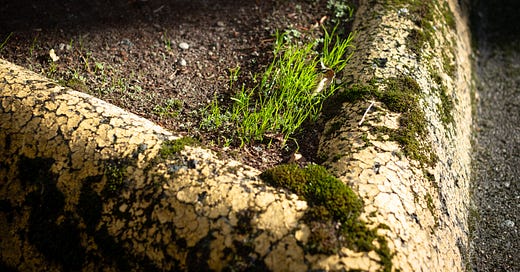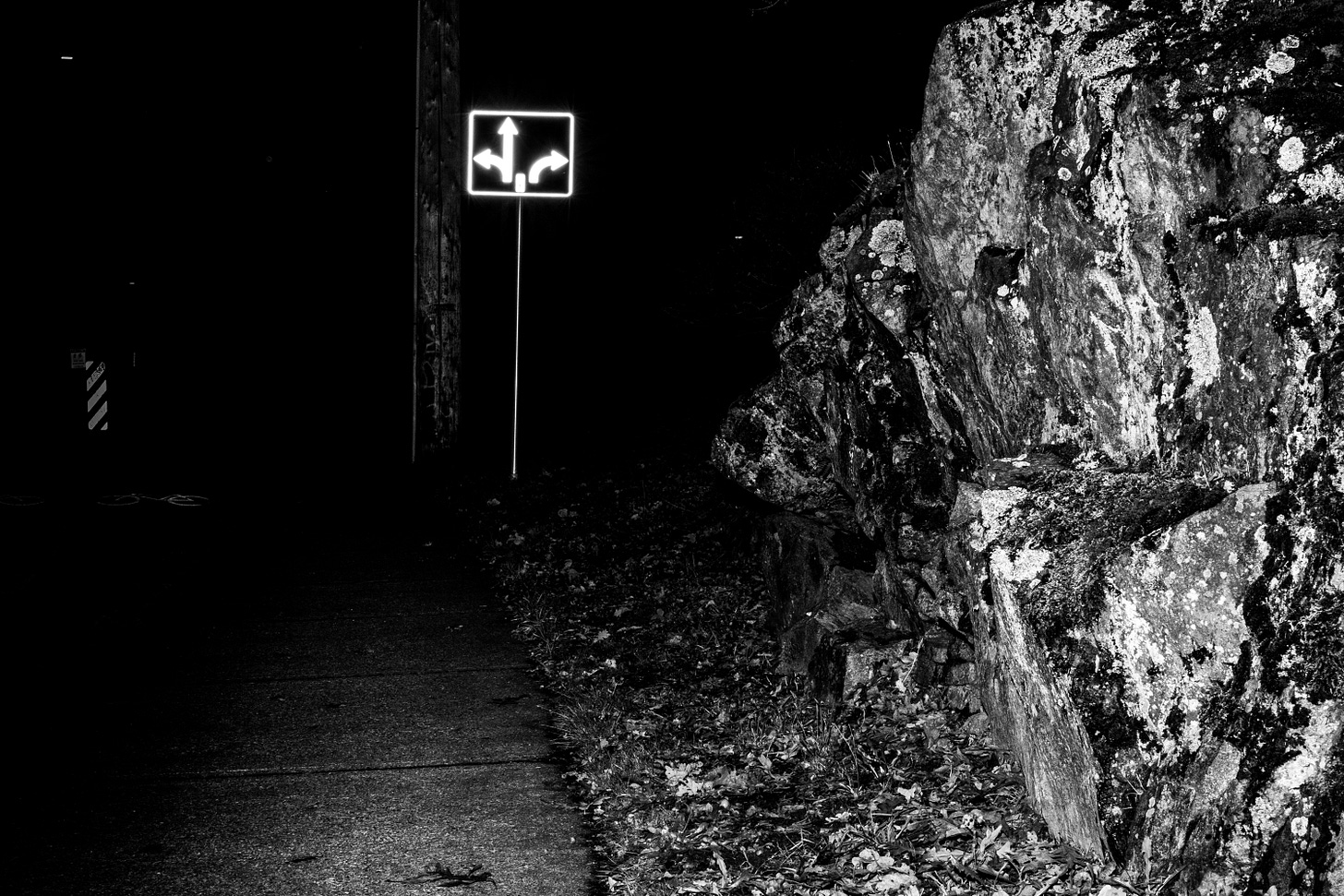Rounds 1 and 2
In which I finally come to grips with writing about what I've done these past two months...
I had put off commenting on my work for round 1 by saying that I was not quite sure what I had done, and so excused myself while asserting that by round 2 I would know better. So whether I know better or not, I owe you some thoughts and reflections now that Paul and I have finished round 2.
And just to be difficult in what follows:
I cannot reasonably includes large quotes of Samantha DeFlitch’s poetry, and only a few journals in which she has published have her work available online. Therefore I will only quote a few lines here and there, yet if you want to have a look at the complete poems, then make sure to invite yourself to coffee and I’ll loan you my copy of “Confluence”.
Although Paul and I base much of what we’re doing on J. W. Fisher’s “Visualizing Poetry” (from page 109 of “The Photographer’s Playbook”), my comments below will roughly reverse the order of procedure — first my image for the round, then the word list I generated from the poem (à la Fisher), and finally what stands out for me about the poem plus a few of its lines.
Round 1: “Open, Like Me”
It is a tuft of grass next to a mossy yellow curb perhaps only a child could delight on seeing. The golden light from late-afternoon sun has the grass even more vivid and alive. As an adult one has to stoop low to look more closely such a curb corner, let alone see it. As a child the access is easier, swifter, less embarrassing.
Word list:
solitude • vulnerability • triumph • wildness • weediness • raking • chasing • growing <--> overgrown • gentle self-seeing • childlike • Verwunderung • suddenly • crepuscule • threshold
I will risk three lines from the poem with the hope I’m staying on the right side of the intellectual-property angels.
Everything is overgrown. Weeds tumble
into the sidewalks where I search for my mother
from the shaded patio. I am gentle with myself.The child in the poem seems to have awakened to a paradox of vulnerability and strength, something that visits even adults when the lowering light of the setting sun transforms sidewalks, cars on the street, store fronts, the old and antique and overgrown, a friend’s face. There are also a few short declarative lines, and four enjambments which catch some of the wonder/confidence the adult poet is recalls of her sure-and-serene childhood self.
Round 2: “Turnpike Toll-Taker”
My filmmaker son refers to the righthand-side rock as “a bit ominous”. The width of the sidewalk/path/road isn’t entirely clear, although the left-most zebra sign hints there ain’t much of it. The arrows indicate all possible forward cardinal directions, albeit in an embarrassing way. The utility pole doesn’t help.
Word list:
the Green Man • Charon • Styx • urbs • Odyssey • extinction •
bridge • Hell's Angels • sunset • afterlife • fatigue • exhaustion •
paradox • contradiction • Orpheus • Aeneas & Anchises •
book VIAnd now the first two lines of the poem:
Why the man in a green shirt? See—
half asphalt, half me, toll takerNearly all of the poem save for its last two lines seem to be a dream/vision sequence, the text’s sounds propelling forward along land, over the air, along roads upon roads. This is what suggested the poem to me as a response to Paul’s work from round 1. There is something of netherworld here, even though only one word (“headlights”) suggests the sensory experience of an oppressive & enveloping darkness.
The rhythms seem to struggle, too, with single-syllable words grudgingly moving into two syllables, a few words with three, and a single extravagant word having four. (There are twos, threes, and fours in my image – let alone an extravagance of stone.) Here is a strong-weak (dash-dot) rendering of first four lines:
– . – . . – – –
– –. – – – – – .
– . . – . – – –
– – – . . – – . – – –I notice only now that the poem’s very last word is “alone” – which also appears in the very last line of the round1 poem (and you’ll have to trust me on this). Hmm!




